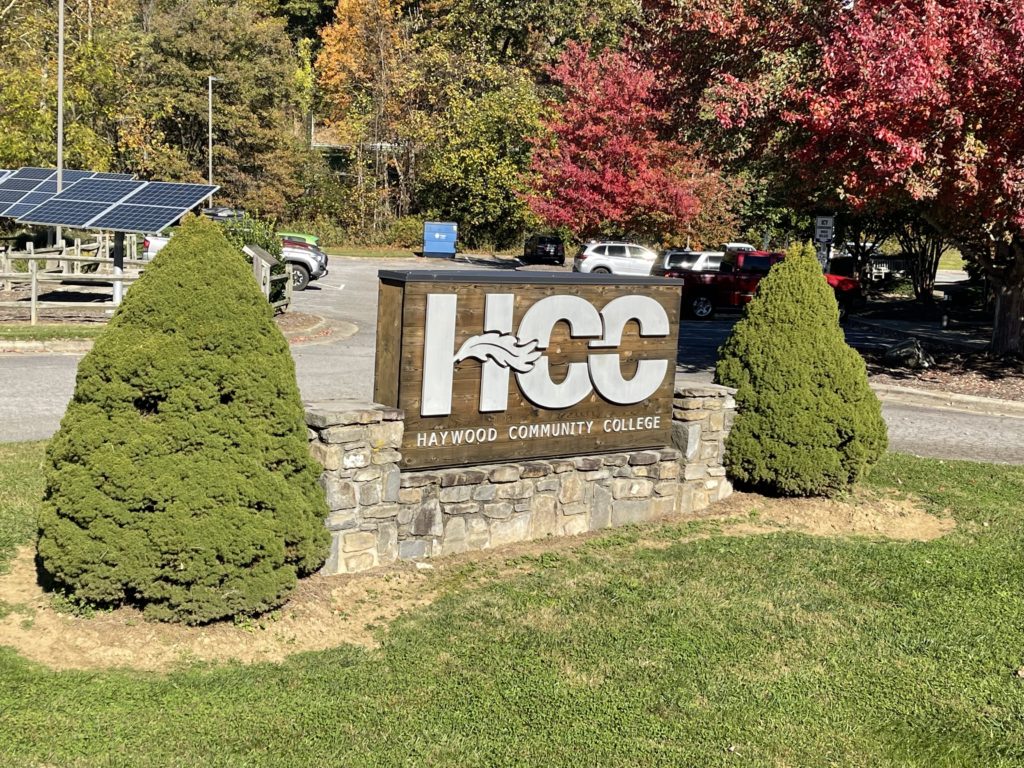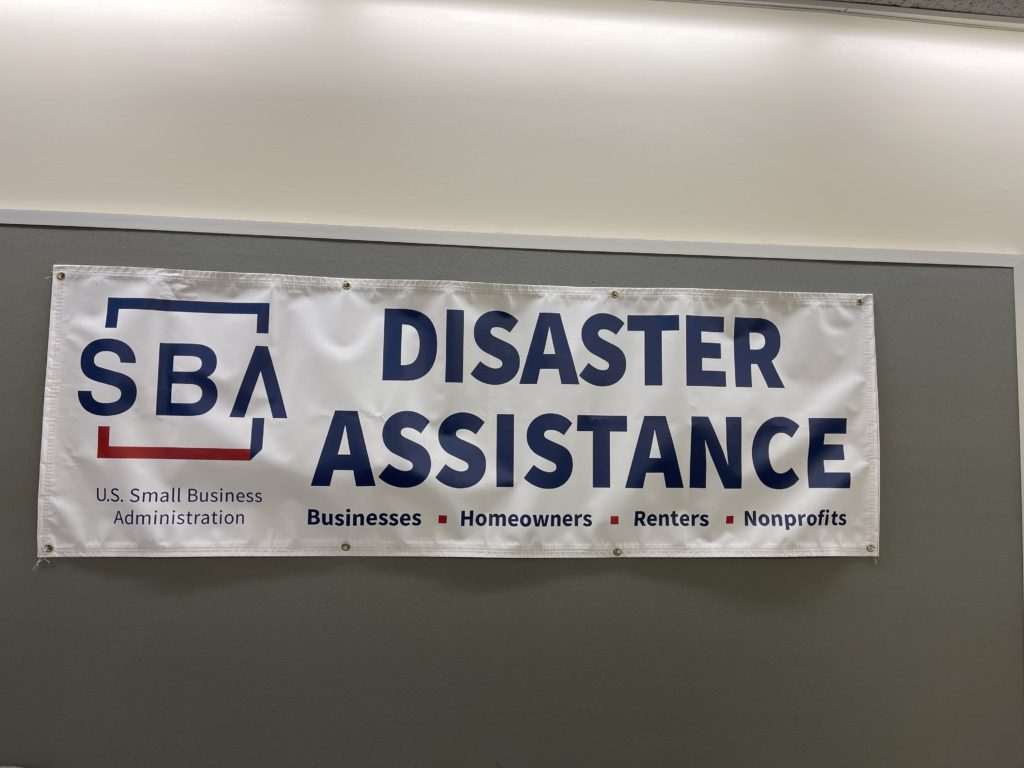|
|
There is a certain amount of grit among mountain folks. That’s how Zeb Smathers, mayor of Canton, described the residents of Canton and Haywood County.

“We pull ourselves up, not just on our own accord … but when someone extends a hand and wants to help, it’s sincere,” Smathers said.
The grit, resilience, and restoration that Smathers talked about has been part of Canton, not just in the last two months, but for the past 10 years.
“We have fought back for 10 years to make this mill town viable again.”
Zeb Smathers, mayor of Canton
According to Smathers, in 2013, Canton had an occupancy rate of roughly 20% in the downtown buildings, an area that also includes the River District. Smathers said before Tropical Depression Fred hit on Aug. 17, the occupancy rate had risen to nearly 85%, and they were all small businesses.
Sign up for Awake58, our newsletter on all things community college.
While Canton prides itself on being a manufacturing town, Smathers said the Canton comeback has been on the backs of small businesses.
So, what happens when a small town like Canton endures a disaster?
People show up and support each other. Businesses that may have previously been competing come together.
“You had businesses supporting businesses,” said Ashley Swanger, director of Haywood Community College’s Small Business Center.
Liz Rhine and Russ Grimmett, owners of Papertown Coffee in downtown Canton, said the support poured in from customers and businesses alike.

“We definitely saw the community pull together,” Rhine said.
And the support was not one-sided. Grimett and Rhine received a donation which allowed them to offer free drinks to the first responders during the week following the flooding.
Papertown Coffee did not experience any material damage after the flooding, and the shop was able to reopen fairly quickly. But other businesses in the area did not have the same experience.

Rhine mentioned Cold Mountain Art Collective, a small Canton business, that had their grand opening just four days before the flood.
According to a social media post from Cold Mountain Art Collective, the water came up 16 inches in the gallery and 32 inches in the studio. While most of the art was spared, the equipment was not.
BearWaters Brewing also experienced significant flood damage. The brewery sits right next to the Pigeon River, and when the flood waters rose that day, they did so quickly.
After weeks of clean-up and help from other brewing communities, BearWaters Brewing had their reopening Oct. 1.
Cold Mountain Art Collective had a second grand opening Oct. 30.
Helping businesses after a flood
The recovery process after a natural disaster is never quick. And the damage is not always just physical.
“People are dealing with what can be equated to grief.”
Ashley Swanger, director of Haywood Community College Small Business Center
Swanger is the new director of Haywood Community College’s Small Business Center (SBC).

She stepped into the role just weeks after Fred hit and started connecting small businesses to all the resources available to them.
Swanger said she did a lot of listening to those whose businesses were impacted by the storm.
“People had a lot to say or were frustrated,” she said. “Sometimes that support is just being here to listen to someone when they have no idea what they need.”
But listening is not the only service offered. Multiple resources are available to businesses in Haywood County.
Haywood Strong, a program set up to support small businesses with disaster recovery, awards qualified businesses with a small grant. A task force reviews applications and initiates awards every two weeks within a 90-day period or until funds are exhausted.
In addition to Haywood Strong, small businesses can apply for a loan through the Haywood Recovery Fund. Haywood County businesses impacted by COVID-19 and Fred may apply.
As for other resources, the Small Business Center of Haywood Community College can help. Whether it’s brainstorming a new idea, creating a disaster plan, requesting loans, or closing or selling a business, the SBC is available to help owners navigate the whole life cycle of their business.
Swanger said the SBC can help even if you just have an idea scratched on a paper napkin.
Parts of Western North Carolina were officially declared a federal disaster in early September due to the impact of Fred, meaning individuals and businesses have access to federal funding.
Residents impacted by the storm in declared counties can apply for assistance through the Federal Emergency Management Agency (FEMA). The deadline to apply for FEMA assistance is Nov. 8, 2021.
In addition to FEMA assistance, the Small Business Administration (SBA) is available to help businesses of all sizes, private nonprofit organizations, homeowners, and renters. According to Haywood County, SBA disaster loans are the largest source of federal disaster recovery funds for survivors, offering long-term, low-interest disaster loans.

For Haywood County residents, a representative from the Small Business Administration is located in the same building as the Small Business Center at the Regional High-Tech building of Haywood Community College.
Looking ahead
As businesses begin to reopen, only time will tell the full impact of Fred.
For Haywood Community College, some of those impacts are already apparent in online and seated classes.
Dr. Shelley White, president of Haywood Community College, estimates that enrollment this fall was impacted about 5-8% due to the flooding.
Even with continued COVID-19 impacts, Haywood Community College was closing in on their enrollment decline from last fall. White suspects the college would have only been down between 2-4% in enrollment. But when Fred hit on the second day of the fall semester, many students chose to push pause on their education.
“We saw an increase in the number of students who either withdrew early from classes … or were just no-shows,” White said.
The college created an individualized outreach plan for all the students they lost at some point during the fall term. They have a list of students who may have been impacted by the flood, impacted by COVID-19, or have issues with child care or health care.
“Each community’s recovery time is going to be different in the pandemic. And now, with Haywood County, the flood is going to have a lasting impact,” White said.
When asked what’s next for the town of Canton, Smathers said first it’s recovery.
“Our first job is to maintain the safety and stability of our communities,” Samthers said. “We have to rebuild our town hall, our police station, our fire station.”
And the river?
“We’re not abandoning the river,” Smathers said. “The river has been a blessing, not only for Evergreen Packaging … We have a small business down there who has invested a lot of time in tubing. It’s amazing what outdoor recreation has become.”
Recommended reading




